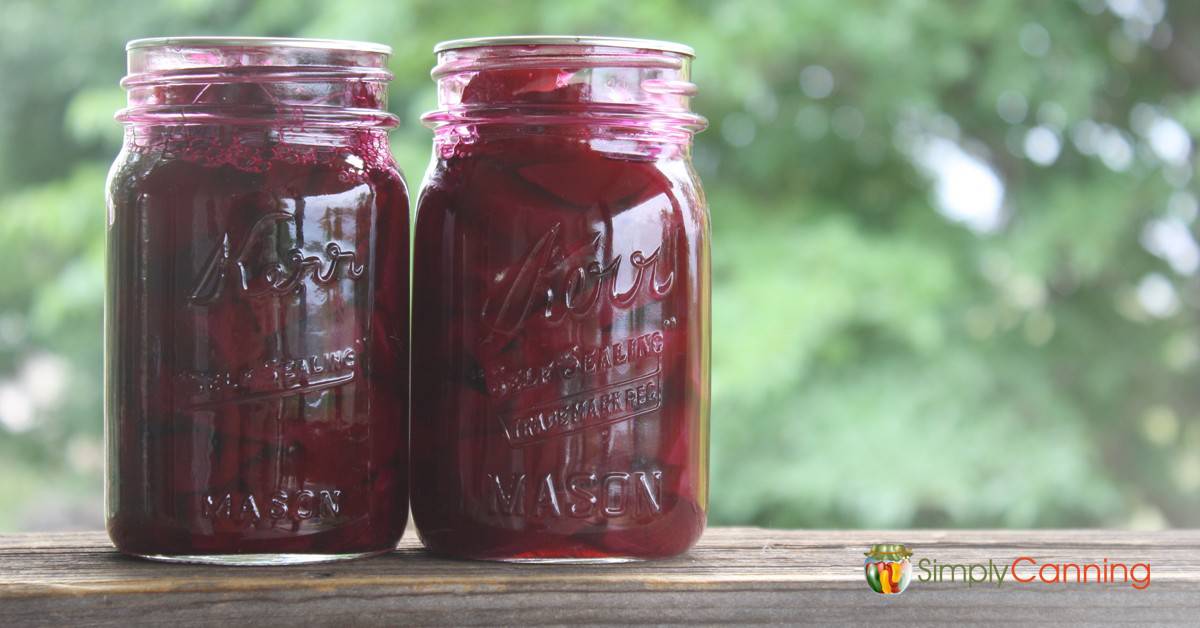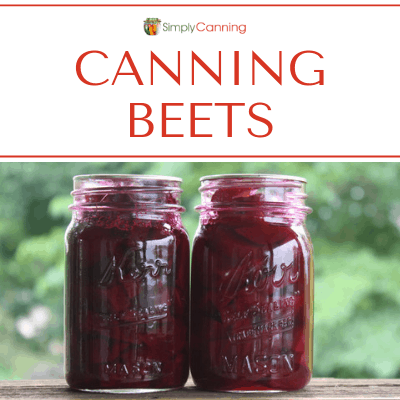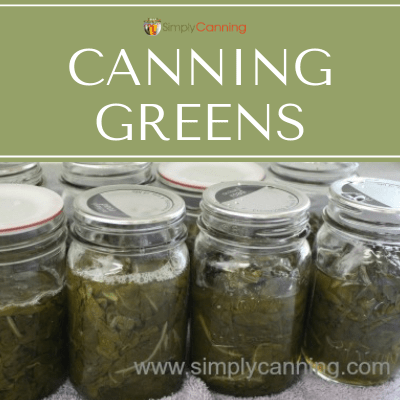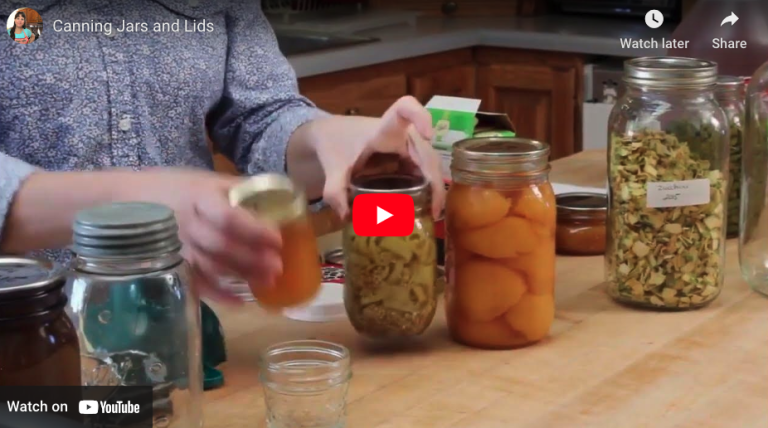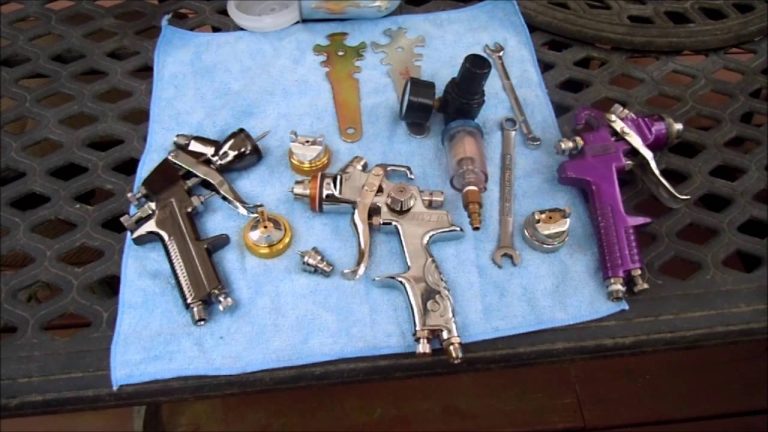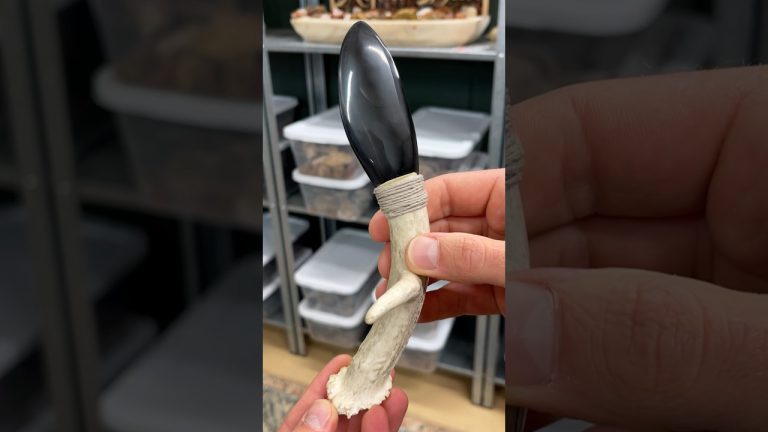A hint of cinnamon makes this pickled beets recipe a winner. If you don’t like cinnamon, just leave it out. The spices can be adjusted safely but not the vinegar ratios.
How to make pickled beets. Cook and peel your beets removing the tops and root. Thinly slice onions. Make pickling brine with the correct ratios of vinegar, sugar, and water. Pack beets onions, and spices like cinnamon or allspice if desired. Bring brine to a boil and pour over beets. Process in a water bath canner or a steam canner. Details follow.
Label your jars with pretty printable Canning Labels! Check them out.
Quantity
This recipe makes 6 pint jars. Quarts are not recommended. You can however reduce the jar size and use 1/2 pints. You’ll just still process for the pint size jar recommendations. I do this all the time as I’m the only one in our house that loves pickled beets. (silly people I live with)
Know Your Canner
This recipe can be processed in a water bath canner (also known as a boiling water canner). It is also a great option to use a steam canner. (not to be confused with pressure canning).
To get familiar with these methods, I recommend checking out these helpful guides: “How to Use a Water Bath Canner” and “How to Use a Steam Canner.” They’ll walk you through the ins and outs of each technique, ensuring you’re all set up.
They’ll also help you decide which method to use. I’d recommend steam canning if you’ve got the right equipment.
Pickled Beets: Extended, Step-By-Step Directions
This recipe was adapted from the Ball Canning Pickled Beets recipe. It has the seasonings that we love. Check below for any adaptations you can safely make to create the recipe for your family.
Gather your supplies:
Ingredients:
- Beets – enough to make 3 quarts
- onions 4-6 small onions, 2 to 2-1/2-inch diameter (optional)
- 2 cups sugar
- 1 cinnamon stick
- 1 Tbsp. whole allspice
- 1 1/2 tsp. canning salt
- 4 cups vinegar (standard 5% acidity)
- 2 cups water
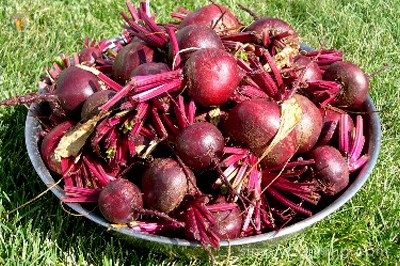
Preparing Beets
Wash
Cut stems to about 2 inches, and leave on the taproot. This will help keep the color when you boil the beets to loosen the skins.
Cook and peel, remove tap roots and stems.
Cook beets in boiling water at medium-high heat until they are tender and skins will slip off.
This may take 25 to 35 minutes, depending on the size of your beets. It helps to scrape a spoon against the beets while cooking to see when the skins start to scrape off easily.
I often have a variety of sizes of beets. I try to sort my beets and cook those of similar size together. The larger ones will take a little longer to cook.
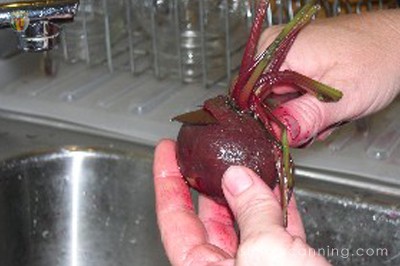
Remove from water and cool in very cold water. When cool enough to handle, use your hands to slip the skins off. Use a knife for the stubborn spots. Cut off the tops and taproots at this point.
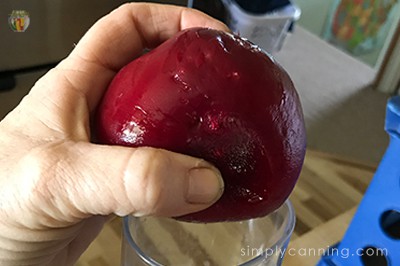
Slice or chop beets to desired size.
I usually slice or cut into chunks. If you’ve got a french fry blade and like that shape it works really well and quick! They should be approximately 1/4 inch thickness.
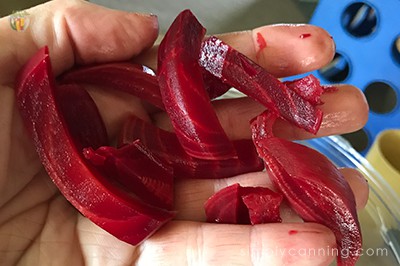
Onions is an optional ingredient. There is not an exact amount for this recipe. No more than 4 to 6 small onions. (2- to 2-1/2-inch diameter).
Peel onions and thinly slice.
Prepare the Pickling Solution
Combine vinegar, water, sugar, cinnamon, allspice, and salt. Bring to a boil. Simmer for 15 minutes. Remove cinnamon stick.
The vinegar you use should be a standard vinegar with 5% acidity. Check your labels. There are many fun vinegar recipes available, and I know some people make homemade vinegar. But the acidity levels matter here. I prefer the apple cider vinegar… but white is fine too. They’ll give a slightly different flavor.
How to Can Pickled Beets
Pack prepared beets into hot canning jars. Cover beets in jars with hot vinegar solution, leaving 1/2 inch headspace. Remove air bubbles with a plastic knife or other small tool. (I like to use an orange peeler. )
Wipe rims clean and process according to water bath canning directions.
Pints – Process for 30 minutes.
Adjust this time according to your altitude on the chart below. For more information on why this is important, see this altitude adjustments page.
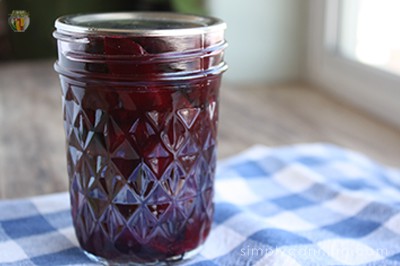
Safe Substitutions and Adaptations
- It is safe to adapt seasonings for this recipe. For instance if you really don’t like the taste of cinnamon, you can just leave that out. Or leave out the spices altogether and just have a plain pickled beet. Add some whole cloves if you like that. It is still good… Personally I like the spices as written in this recipe. I’ve got some ideas for homemade pickling spice in this article that might give you some good ideas.
- Do not adapt the ratio of vinegar and water. 4 cups water/2 cups vinegar mixture is required for safety acidity reasons if you want to process these for storage in your pantry. If you are making less quantity, you can cut the recipe in half… but keep that same ratio.
- You can choose between either plain white vinegar or apple cider vinegar but be sure the acidity level of your vinegar is at 5% acidity. Check the labels.
- Because this is considered a quick process pickle, (there is no fermenting involved) you can safely reduce the sugar.
- This recipe is a canning recipe but if you want just a refrigerator beet recipe you can simply skip the processing step and put these in the refrigerator. I’d suggest you cut the recipe down so you only make the amount you’ll eat in a short time. This recipe is only shelf stable if you process the jars as instructed.
Pickled Beet Eggs
The brine from these pickled beets can also be used to make pickled eggs! Pickled eggs are always a refrigerator pickle. When you’ve eaten all the pickled beets from a jar, don’t toss the juices.
Pickled Beets Tips and FAQs
I’m so glad you asked! Because that means you are paying attention and being safe!
When canning beets (not pickling) you need to process in a pressure canner.
But with pickled beets, vinegar is added and this acidifies the beets. This acidity makes them a high-acid food. Therefore, the pickled beets recipe can be processed safely in a water bath canner.
Pickled beets are lovely just as a side dish with any sort of roasted meat. Also makes a great addition to a summer barbecue, as it is not something more to cook. ? I love to slice it up and cut into small pieces and add it to my salads as well. Try pickled beets with different things and see what you like!
You can actually eat it right away…but you might be disappointed as they won’t be very pickly (made up word). The beets do need some time to pick up on the pickling flavors. I’ve never tested it, so I can’t say for sure how long you need to wait for best flavor. I’d advise waiting at least a week though…longer is probably better (i.e., more time to develop deeper flavor).
Pickled Beets Recipe Card
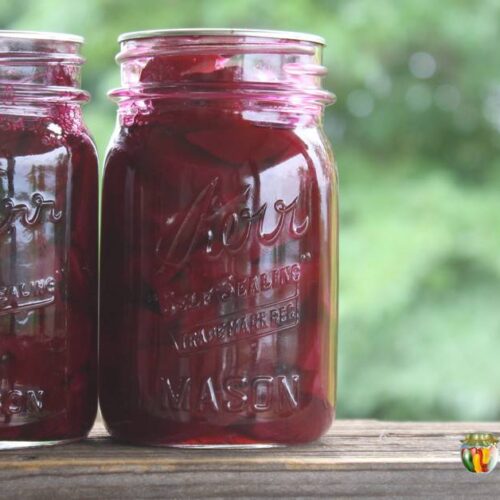
Pickled Beets
A hint of cinnamon makes this pickled beets recipe a winner. If you don’t like cinnamon, just leave it out. The spices can be adjusted safely but not the vinegar ratios.
- 7 lbs Beets approximate
- 2 cups 2 cups sugar
- 1 stick 1 stick cinnamon
- 1 Tbsp 1 Tbsp. whole allspice
- 1½ tsp 1 1/2 tsp. canning salt
- 4 cup 4 cups vinegar
- 2 cup 2 cups water
- 2-4 small onion optional
Preparing Beets
Wash beets, keeping taproot and 2” of stem.
Boil the beets until tender, about 25–35 minutes.
Transfer beets into very cold water.
Remove skins, stems, and taproots.
Slice or chop beets to desired size. Keep hot.
Peel and thinly slice onion if using.
Prepare Brine
Combine vinegar, water, sugar, and seasonings in a saucepan.
Bring brine to a boil. Simmer for 15 minutes.
Remove cinnamon stick.
Canning Procedure
- Start by preparing jars and getting water in the canner heating. You want the canner hot, but not boiling, when the jars are ready to be processed.See full water bath canning instructions here.
Hot Pack only
Pack beets and onion into hot canning jar.
Cover beets with hot brine, leaving 1/2” headspace.
Remove air bubbles, wipe rim clean, and place on seal and ring. Place the jar in the warm canner. Proceed to fill all jars. Process according to chart below.
Adapted from: Ball Blue Book, The National Center for Home Food Preservation
Related Pages
The process is fairly simple, but may take a little longer than other vegetables you’re used to canning. Step-by-step guide, with tips and tricks, included here.
Sign up for the newsletter to receive a variety of information, including updates to the site, answers for frequently asked questions, recipes, and canning tips.
Pin This to Find Later!
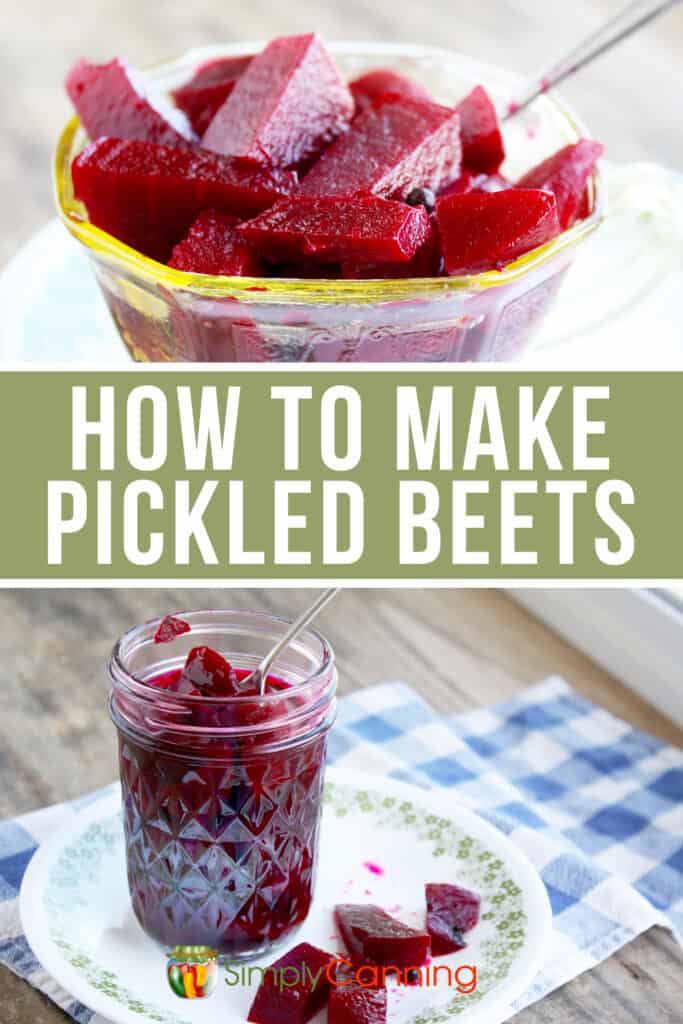
Sources:
- Ball Blue Book,
- The National Center for Home Food Preservation,
- https://fyi.extension.wisc.edu/safefood/files/2019/08/SafeSubstitutions.pdf
Source link







